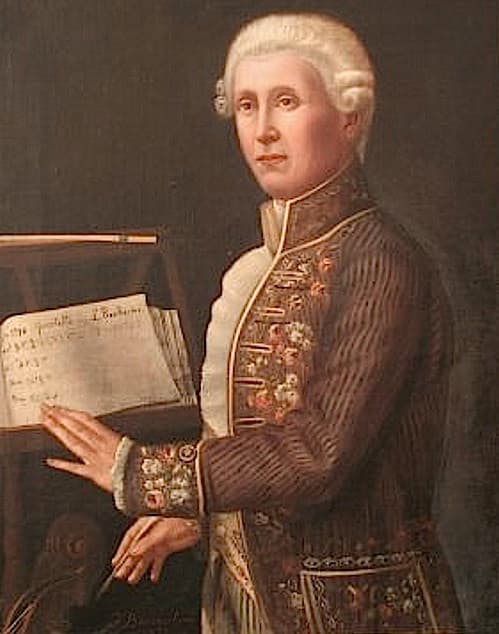Early Life and Musical Prodigy
Born in 1743 in the vibrant city of Lucca, Italy, Luigi Boccherini was destined to become one of the most celebrated composers and cellists of the Classical period. From an early age, Boccherini displayed an exceptional talent for music, honing his skills as a virtuoso cellist under the tutelage of his father, a respected double bass player.
Rise to Prominence in Europe
As Boccherini’s reputation as a skilled performer grew, he began to explore his own creative impulses, composing a series of captivating chamber works that showcased his intimate understanding of the cello. His early string quartets and quintets, marked by their elegant melodies and intricate interplay between the instruments, quickly gained the attention of the European elite, establishing Boccherini as a rising star in the musical firmament.
The Spanish Influence
In 1767, Boccherini’s life took an exciting turn when he accepted a prestigious position as a court musician in the service of the Spanish royal family. This move to Madrid would prove to be a pivotal moment in his career, as it allowed him to immerse himself in the rich cultural tapestry of Spain, drawing inspiration from the country’s vibrant folk traditions and incorporating them into his own compositions.
Iconic Works and Prolific Output
Boccherini’s Spanish sojourn gave birth to some of his most iconic works, including the famous “Fandango” quintet, which seamlessly blended the virtuosic cello writing for which he was renowned with the rhythmic vitality of Spanish dance music. His prolific output during this period, which included over 100 string quartets, 100 string quintets, and numerous concertos and symphonies, cemented his reputation as one of the most versatile and innovative composers of his time.
Challenges and Resilience
Despite the acclaim and success that Boccherini enjoyed, his life was not without its challenges. The political turmoil that swept across Europe in the late 18th century, including the Napoleonic Wars, disrupted his career and forced him to relocate on several occasions. Yet, through it all, Boccherini remained steadfast in his dedication to his craft, continuing to compose and perform with the same passion and virtuosity that had defined his early years.
Legacy and Enduring Impact
Boccherini’s lasting legacy, however, extends far beyond his impressive body of work. As a pioneering cellist, he helped to expand the technical and expressive capabilities of the instrument, paving the way for future generations of virtuosos. His chamber compositions, with their intricate dialogues between the instruments and their elegant, refined sensibilities, have become cornerstones of the classical repertoire, inspiring composers and musicians alike.
When Luigi Boccherini passed away in 1805, the musical world mourned the loss of a true master, a composer whose unique voice and unwavering artistry had left an indelible mark on the course of classical music. Today, his works continue to captivate audiences around the globe, a testament to the enduring power of his music and the enduring legacy of this remarkable Italian composer.


